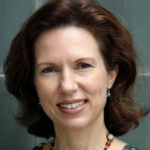8th March 2017 London, UK
Women leading British diplomacy across Europe
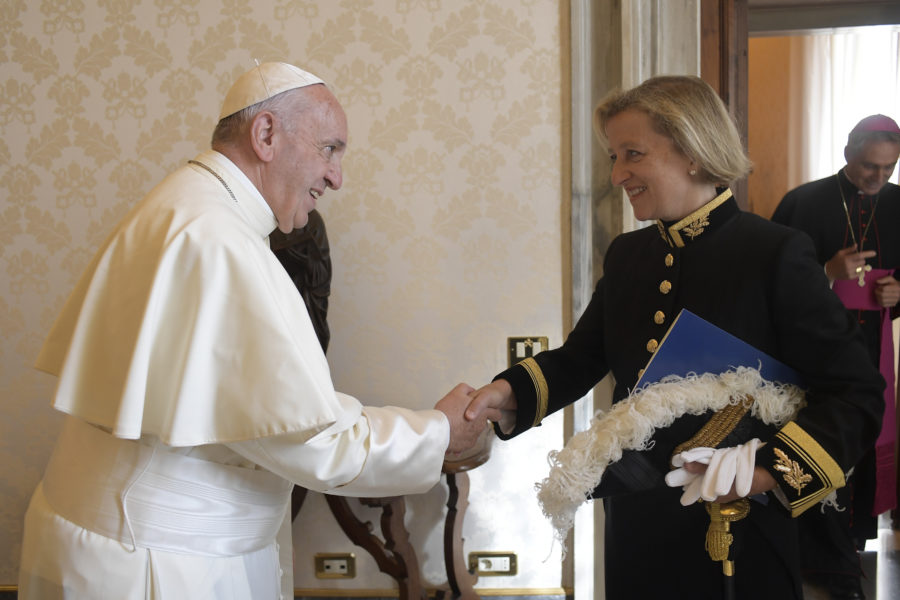
“I would venture to guess than Anon, who wrote so many poems without signing them, was often a woman” – Virginia Woolf hit the nail on the head. Too often the incredible work and leadership provided by women has been obscured by modesty, self-doubt, or in some cases outright sexism.
The UK’s Foreign and Commonwealth Office has made immense strides forward on gender equality over the last few decades. We now have 54 female Heads of Missions around the world. Women head nearly half of our Embassies across Europe.
Although it is now normal to have women in leadership roles, there are not enough of us. We still need to champion female and more diverse types of leadership. Too often leadership is seen as a masculine preserve. Too many women still shoulder the bulk of childcare responsibilities, or are held back by self-doubt. It is still not the norm to find a man who is willing to put his wife’s career first. And the increase in single parent families presents new challenges. These are all things the Foreign Office continues to grapple with.
So there is still work to do. As well as championing women internally, we support the rights of women and girls around the world, and have just appointed Joanna Roper as our first ever Special Envoy for Gender Equality.
For International Women’s Day our female Ambassadors across Europe have shared their thoughts on leadership, and offer advice to other women to help them fulfil their potential. I hope you will find them as inspiring as I do:
Kirsty Hayes – Ambassador to Portugal
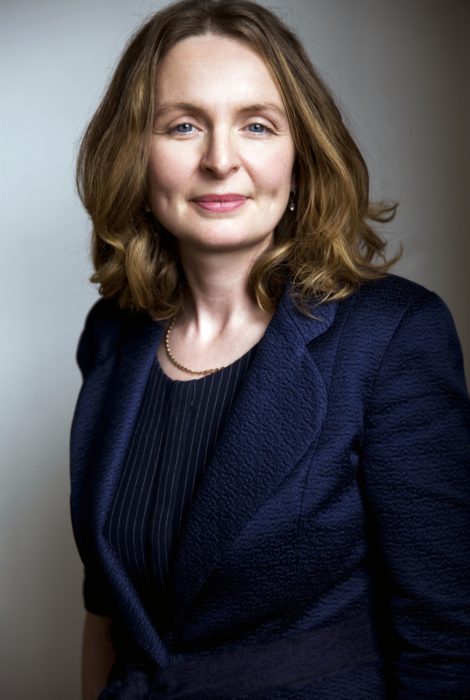
‘At the end of the day there is no place for women in the diplomatic service because all they want to do is go off and have babies’. ‘I’m sure Kirsty will find being the wife of a busy head of mission a rewarding role in its own right’. ‘The trouble with this policy, Kirsty, is it is not very manly.’ All things said to or about me during my FCO career, admittedly most a decade or so back. Luckily, the organisation is changing. The fact that there are 14 female Heads of Mission in Europe Directorate is a sign of this. I’d argue that you would struggle to find any organisation, private or public, that offers
a better deal for working mothers (and indeed fathers) in terms of parental leave; flexible working options; and a fantastic crèche, without which I would not have been able to return to work so soon after having children.
Here in Lisbon we are lucky to have a fantastic group of female Ambassadors – more than 20. We meet together to share learning; invite guest speakers and organise events which we hope will benefit gender equality in Portugal. When last year a new Portuguese President took office, he invited our group to the Palace as his first meeting with foreign Ambassadors and proclaimed himself a ‘Presidente feminista’ – since then we collaborated with him on a conference for ‘Women in Diplomacy’ where I spoke about the FCO’s PSVI campaign.
In terms of advice to women, I’d say aim high and seek to be the change you want to see – and don’t forget to ‘pay it forwards’ by supporting more junior colleagues. For men, and all managers, I’d say the fact I still remember the words at the top of this blog shows that careless words can stick. The FCO can make the best policies in the world but our ability to promote genuine equality will only ever be as strong as our weakest manager.
Sally Axworthy – Ambassador to the Holy See
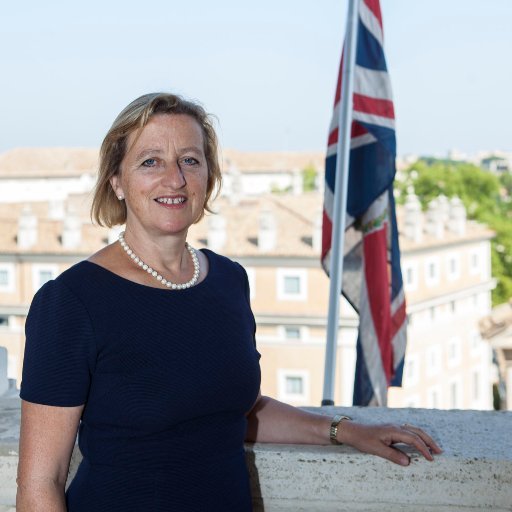
When I joined the FCO 30 years ago there were few senior women, and none with children. I experienced being assumed to be the PA; being subject to inappropriate propositions; and being told not to think about promotion! Now we have many senior women. For me, the FCO’s excellent flexible working provisions – and supportive line managers – were what enabled me to stay. I look forward to us completing the transformation: we still need a female PUS, and female ambassadors to Washington and Paris!
The Holy See has few senior women (because of the practice of appointing priests to top jobs) but the Vatican does have around 750 female employees – about 20%. I am discovering too that women play a significant role in the Catholic Church. There are 800,000 religious sisters – twice the number of priests – often working with the most marginalised in society (e.g. trafficking victims) or educating and empowering girls. Working with these inspiring women will be a key part of my role over the next four years.
Jill Morris – Ambassador to Italy
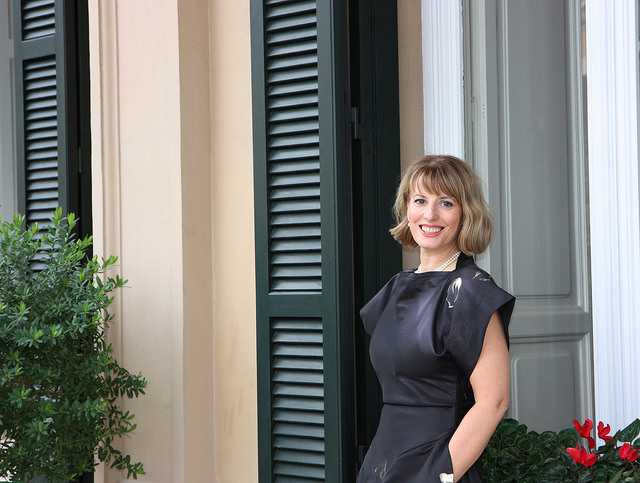
When I arrived last summer as the first woman to be British Ambassador to Italy, I was often asked whether I preferred to be called “Ambasciatore” or “Ambasciatrice”*. There is a lively debate in Italy about whether women should use the feminine versions of job titles, and there are differences of opinion. For example, some Ministers use “Ministro” and some “Ministra”.
In the English language, we can – mostly – avoid these linguistic difficulties. But we have in common the issues around women in the workplace that the Italian language debate highlights. In the UK, the average pay for full-time women employees is still 9.4% lower than for their male colleagues. In Italy, the employment rate among women is 47%, well below the EU average of 59%.
I have met so many successful and inspirational women in Italy in all fields: politics, economics, business, finance, education and culture. I have the great fortune to be able to collaborate with them on exciting projects, including sharing our experiences to make sure more women break “il soffitto di cristallo” whether that means sitting on Boards or excelling in areas of study or business traditionally seen as a male domain.
I am also inspired every day by the women I work with at the Embassy and Consulate-General. Women make up 60% of our Team Italy. And I am proud to lead such a great team – with women and men who exemplify how diversity strengthens organisations and makes us better at what we do.
*In case you were wondering, I chose “Ambasciatore”.
Emma Hopkins – Ambassador to Bulgaria
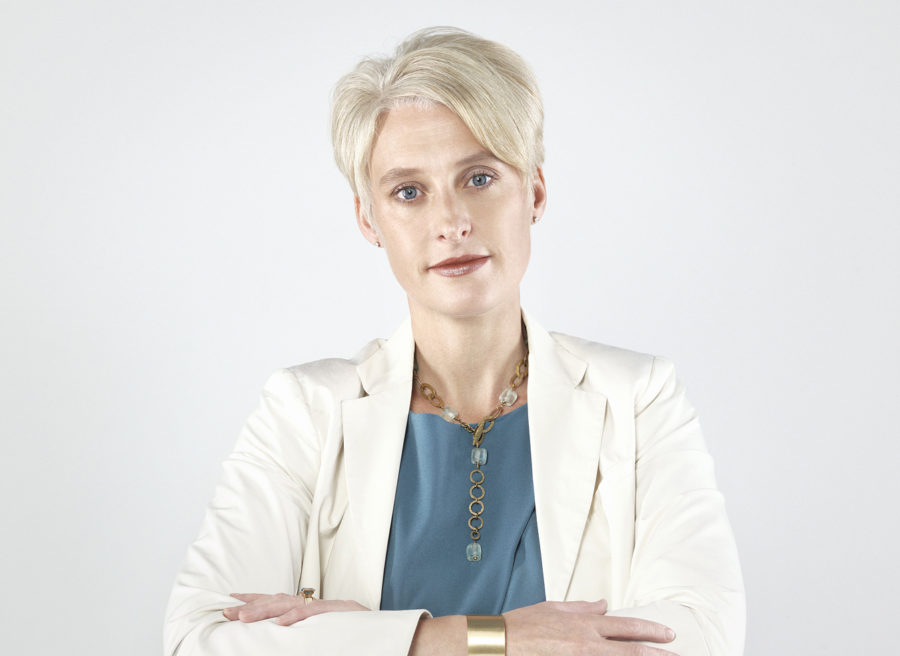
I love the hashtag for this year’s International Women’s Day – #BeBoldForChange. As I look across the EU network and see an increased number of female HoMs (Heads of Mission) I do feel a sense of change. I do believe that the organisation is becoming more open and inclusive. My female HoM colleagues are also changing the culture by leading in their own way. As a female leader I constantly set my own parameters. I have two small children so I will host business lunches rather than dinners. I won’t start meetings at 8.30 or 9 not to disadvantage those dropping kids off at school. I try to support the women who work for me by showing them that it is OK to be yourself, to be vulnerable, to make mistakes but pick yourself up. I want to build confidence and self-belief amongst those young women at my Post to avoid the self-limiting behaviour that I have seen and that I do myself sometimes.
I believe that I can do it and I will do it my own way. I want them to believe that too.
So for this International Women’s Day I will be asking my staff to be bold for change by supporting each other, by mentoring a woman or taking a junior colleague to an event or meeting. I always remember Madeleine Albright’s famous quote – “There is a special place in hell for women who don’t help other women”. So be Bold For Change today.
Sian MacLeod – Ambassador and Head of UK Delegation to OSCE
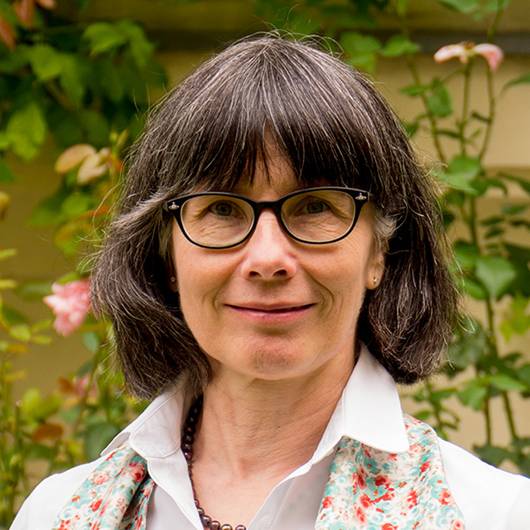
I am one of 20 women ambassadors at the Organization for Security and Co-operation in Europe (OSCE), 35% of the total, possibly the highest proportion at any multilateral organisation.
It has been suggested to me that this proportion reflects an OSCE focus on ‘soft’ security. But there is nothing fluffy about Conventional Arms Control or Conflict Prevention, both high on my priority list. However, the OSCE is a good forum for addressing gender issues. For example, chairing the OSCE Human Dimension Committee I have timetabled discussions on ‘Women, Peace and Security’, ‘Women’s Participation in Political and Public Life’, and Modern Slavery/Human Trafficking. My team has also worked to highlight domestic violence and sexual violence in conflict (the latter with a very well received visit by Baroness Anelay last summer).
Increasing women’s participation in security and international affairs is not just a matter of principle. If we can achieve gender balance across the OSCE, we have the potential to build a qualitatively different multilateral organisation. More women diplomats and specialists might make a real difference to conflict prevention and resolution… especially with more women political leaders to bring about cultural shifts.
Meanwhile, my 50/50 gender balanced UKDel team will be committed to doing what we can to promote equality and diversity 365 days a year.
Sarah Price – Ambassador to Finland
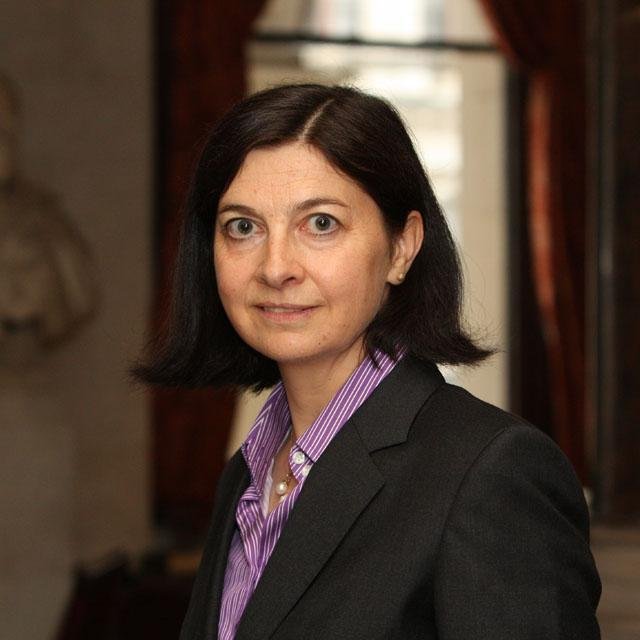
Finland is a trailblazer in women’s rights – it was the first European country to give women the vote, in 1907. Affordable childcare and generous parental leave make it easy to combine parenthood and work. The Foreign Ministry’s gender challenge is recruiting enough talented young men to balance the preponderance of female applicants. So you would think that IWD would not be anything special in a country where so much progress has been made towards equality. But refreshingly I find myself discussing gender equality far more than I ever expected.
Finns are famously honest and self-critical. So although much has been done here, they still talk about where there’s room for improvement (women in senior levels of business, part-time jobs, domestic violence). And Finland has made a point of exporting its values, especially gender rights. Promoting the development of women is one of its foreign policy priorities, woven in to foreign as well as development policy at all levels. Finland is the second biggest funder of UN Women and has a dedicated Ambassador for Women’s Rights. We could learn from their readiness to carry on improving and from their mainstreaming of gender equality into wider external policy.
Alison Rose – Ambassador to Belgium

Mine is not a typical diplomatic career. I started my working life running two Jobcentres in South East London. Since then, I’ve worked in seven Government Departments other than the FCO, on a wide range of policies from setting up Transport for London to regulating coal mines and including a lot of EU work along the way.
Being an Ambassador is the most rewarding and the most challenging job I have ever had. I find I am drawing on all the competences, experiences and knowledge I have gained in all my previous jobs, and in my voluntary work as well. For example, I received a lot of training in public speaking through voluntary work at my local church, which has been invaluable. And my personal interest in mental health and in history has helped me with my ‘brand.’
So one tip would be to value what you personally bring to any role. We women still have a tendency to focus on our weaknesses rather than our strengths. The other side of that coin though is never to underestimate how much more you have to learn! One foreign secretary said that one quality he looked for in Ambassadors was curiosity. I agree! That can include asking intelligent (I hope!) questions about how proton therapy works when talking to an inward investor. And it includes active listening to the story of a guest at a reception. But it also shows how it is often those human qualities rather than a stellar CV which can make all of us, whatever our gender or background, effective diplomats.
Sarah Gillett – Ambassador to Norway
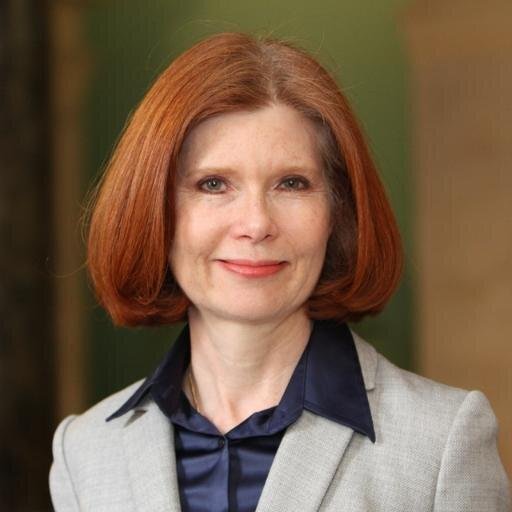
Norway is a great place to celebrate achievements in gender equality. Norwegian women are prominent in many spheres, from politics to energy companies to the military.
Norwegian childcare and employment practices are more helpful to women than in many countries. The strong egalitarian culture has been a positive factor. But not all the answers have yet been found – there is still an under-representation of women in top positions.
The group of female ambassadors in Oslo is growing, and represents all continents. We meet monthly with a Norwegian guest to discuss a range of matters, including motivations and overcoming particular challenges women have faced in their careers. The invitations are eagerly accepted. Even Prime Minister Erna Solberg has attended an especially memorable lunch.
On 8 March the female ambassadors’ group is inviting all the male ambassadors in Oslo to afternoon tea in the British Residence. We are very much looking forward to celebrating International Women’s Day with our male colleagues.
Sophie Honey – Ambassador to Slovenia
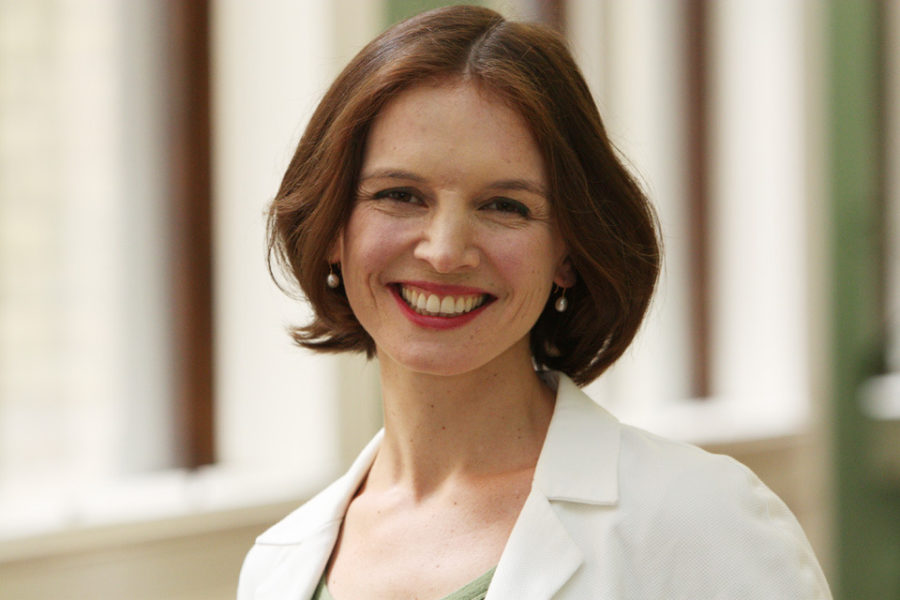
I spent part of International Women’s Day speed mentoring women at Ljubljana University. Many of them asked me about combining professional life and family and it struck me this wasn’t something I even thought about twenty years ago, though maybe I should have done. No I just launched off on the professional stuff and assumed that meeting someone and having a family was something that would happen to me along the way.
It didn’t really pan out like that and at a certain stage I decided to stop travelling, with all the complications of long distance relationships, and stay put in London to have a decent chance of meeting someone and having kids. So when I was asked this question today, the best I could come up with was, think about the whole of your life and what you want, make the choices that are right in that context. Do guys think like that too? Well, I don’t know… I don’t really care! Do what’s right for you…
Oh and read this article by Chimamanda Adichie … Great suggestions on raising feminist kids and principles for professional life too.
Kate Smith – Ambassador to Greece
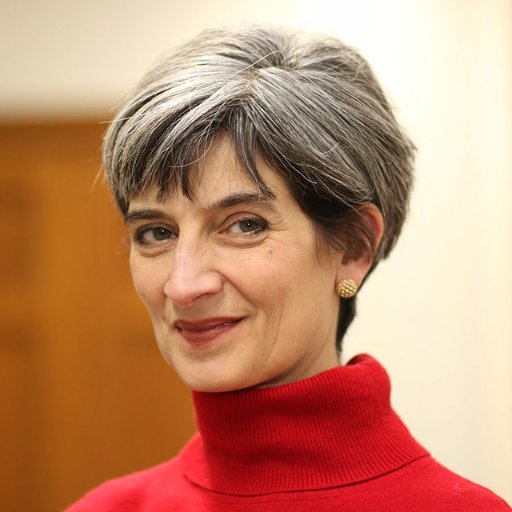
It is quite special to be the first woman British Ambassador in Greece, at a time when the Head of State and Head of Government of the country I represent are both women too. But very few people I meet remark on that fact. Female leadership is increasingly “the norm”.
Here in Greece, women occupy, and have occupied for decades, key positions in government, academia, culture and business – though the country has never had an elected female Prime Minister or President, it’s perfectly possible. And the fact the two of the key figures involved in Greece’s current economic programme negotiations happen to be two of the world’s most powerful women – Angela Merkel and Christine Lagarde – merits only a passing reference. The politics and economics, not whatever particular female qualities or attributes they may or may not apply to the issue – are the key factors.
Claire Lawrence – Ambassador to Lithuania
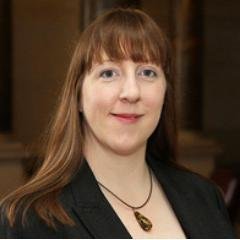
Sometimes I can be very conscious that I am the first female British Ambassador in Lithuania, particularly walking past pictures of my predecessors outside my office. That initially made me nervous, that I would be doing the job differently, or at least be perceived to do it differently. But it hasn’t turned out to be the case.
To be a woman leader in diplomacy is normal now. Many other Ambassadors in Lithuania are women (including from the US, Germany and Sweden), as is the Lithuanian President. I do the same job as my predecessors or any British Ambassador around the world. I represent and talk about the British interest in Lithuania, whether that is security or trade; that hasn’t changed just because I’m the first woman to do it.
Theresa Bubbear – Ambassador to Estonia
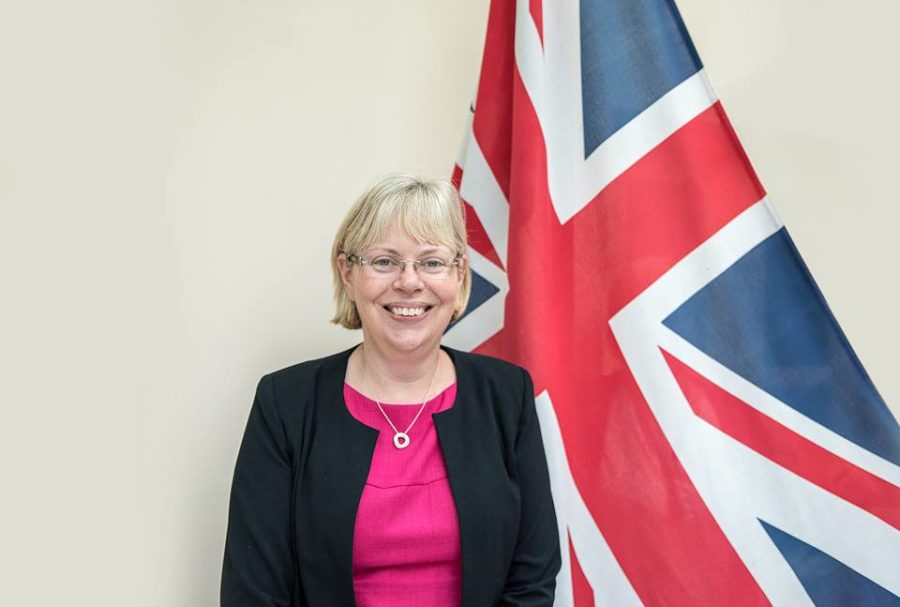
Growing up as one of three sisters, attending a girls’ school, and with three daughters of my own, it never occurred to me that there was anything women couldn’t do. My FCO intake in 1985 was the first to be 50% female, but that was just an interesting fact – it didn’t mean anything to me. I’m sure I got interesting jobs and occasional promotions because of my skills and experience, not because of – or in spite of – my gender.
I don’t know if I’ve just been lucky or if it was naive to believe that the world was a fair place (in gender terms), or if I’ve done other women a disservice by believing that gender wasn’t an issue. So I have done my best to support women inside and outside the FCO through coaching, mentoring, championing flexible and remote working, and just acknowledging how complicated life can be, especially with children. Now I have a female deputy and work in a country with a female President and a city where 46% (13 of 28) of the resident ambassadors are women. The male ambassadors grumble that we are taking over, but in reality it’s a friendly and supportive community – and, like the FCO, gender blind.
Jan Thompson – Ambassador to Czech Republic
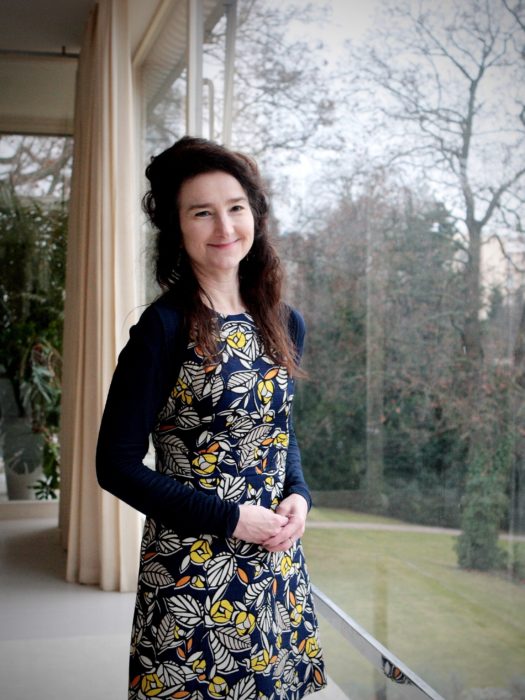
Across politics, business and academia, the Czech Republic boasts fewer women in the highest tiers of leadership than does the UK. The country has yet to elect a female President or Prime Minister. And it has one of the highest gender pay gaps in the EU. But progress is being made. A woman was recently appointed to head the prestigious Academy of Sciences; another serves as the country’s EU Commissioner in Brussels. As the fourth female British Ambassador to the Czech Republic in a row I attract interest and some bemusement locally – as if the UK were somehow trying to make a point rather than simply selecting the best candidate for the job. But it doesn’t deter the throngs of high-flying women at my annual IWD lunch, keen to celebrate success and brainstorm on how to push on faster. Our inspiration this year? A showing of the award-winning British film “Suffragette”, as a reminder of the sacrifices made by those who came before us.
